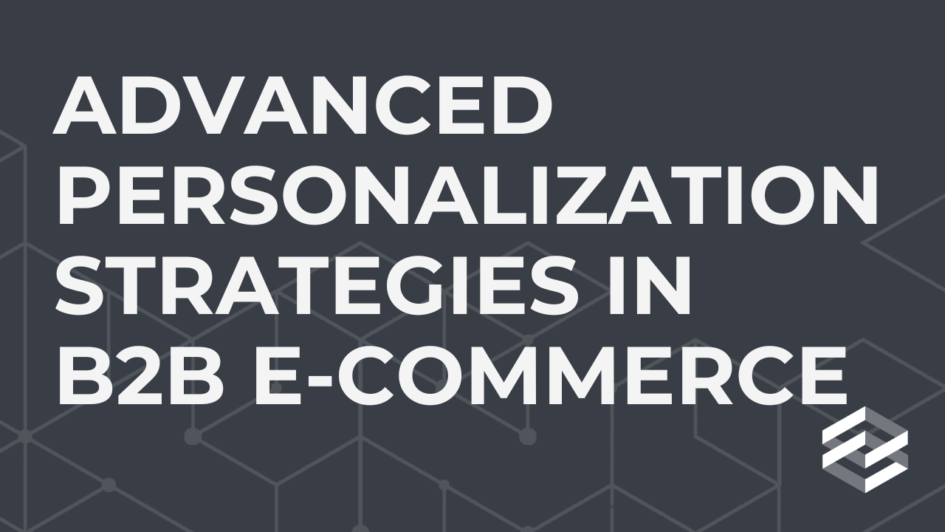Personalization in B2B e-commerce is a must for crucial business strategy. E-commerce businesses that effectively personalize the customer experience not only see increased engagement but also significantly higher conversion rates and customer loyalty.
Here are some advanced strategies for implementing personalization in B2B e-commerce, illustrating how far beyond basic product recommendations businesses can go to meet the unique needs of each customer.
The Importance of Personalization in B2B E-Commerce
The value of personalization in B2B e-commerce cannot be overstated. According to a Salesforce report, 72% of business buyers expect personalized engagement that mirrors B2C experiences. However, personalization in B2B extends far beyond what B2C offers, due to the complexity of transactions, larger order values, and longer sales cycles typical of B2B transactions.

Advanced Personalization Strategies
Segmented Content Personalization
Purpose: Deliver content based on the specific industry, business size, or role of the visitor.
Implementation: Use data analytics to segment users and tailor content such as case studies, product videos, and blogs that align with their specific business needs.
Dynamic Pricing and Discounts
Purpose: Offer pricing that adjusts based on the volume of purchase, contract terms, or customer loyalty.
Implementation: Opt for an e-commerce solution that dynamically adjusts prices and discounts in real-time, based on the customer profile and their previous interactions with your business.
Customized Product Recommendations
Purpose: Suggest products or services that not only match the customer’s current needs but also anticipate future needs.
Implementation: Leverage machine learning models to analyze past purchases, search history, and customer behavior to suggest products that are likely to be needed.
Personalized Dashboards
Purpose: Provide a personalized interface where customers can view relevant information such as order history, tracking, and custom reports.
Implementation: Design user interfaces that adapt based on user preferences and behaviors, offering a more intuitive and customized experience.
AI-Driven Customer Support
Purpose: Enhance customer support by offering more precise and context-aware solutions in real-time.
Implementation: Implement AI chatbots that can access customer data, understand complex queries, and provide informed solutions quickly.
Personalization in B2B e-commerce is about understanding and reacting to the unique needs of business buyers in real-time. By moving beyond basic personalization to implement more sophisticated, data-driven strategies, B2B e-commerce businesses can significantly enhance customer satisfaction, loyalty, and overall sales performance. As technology continues to evolve, so will the capabilities and expectations around personalization, making it an ever more critical element in the B2B e-commerce toolbox.
Looking to add personalization to your B2B e-commerce platform? We can help! Contact us to find out how!

